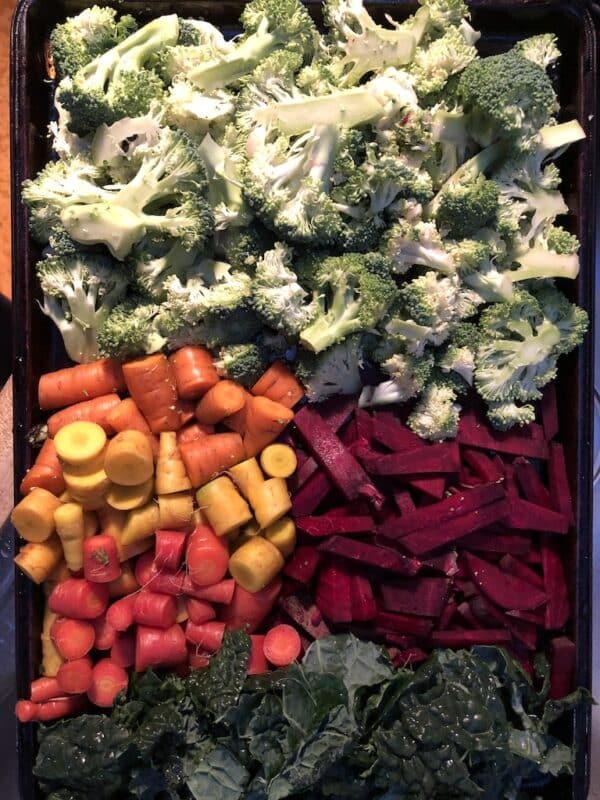 Before food enters our body, the mind begins the digestion process of what foods we are about to consume. Then comes the mouth as the initial point where food enters the body. Our mouths play a very important role, as this is the start of what feeds the tiny bacteria living in our small and large intestine. The saliva in our mouths then serve as an aide to the break down process turning the food into glycogen & simple sugars.
Before food enters our body, the mind begins the digestion process of what foods we are about to consume. Then comes the mouth as the initial point where food enters the body. Our mouths play a very important role, as this is the start of what feeds the tiny bacteria living in our small and large intestine. The saliva in our mouths then serve as an aide to the break down process turning the food into glycogen & simple sugars.
From here, the food then travels down the duodenum (where bile is added to help break down and absorb the fats) turning the food into a pulpy acid substance called “chyme”. This fluid, consisting of gastric juices and partially digested food then finally enters the small/large intestine where the process speeds up a bit.
Our small and large intestine is loaded with zillions of microflora A.K.A bacteria. In fact, when we have a “bile movement”, the stool will have more bacteria cells in it than cells we have in our bodies. We are pretty much made up of bacteria.
These little guys are “enteric” meaning they live in and on our intestines. Don’t get too freaked out yet, as these tiny living creatures are there to help us live our best life’s! To clear the air, bacteria are single celled creatures that do not have a nucleus. There are initially 3 types; we have the symbiotic, commensal and the parasitic bacteria that all live in our small and large intestines.
The two that are “good for us” are the symbiotic and commensal. The symbiotic helps work with our body and adapts to other cells to ensure proper flow. The commensal type is more of neutral type as this guy lives within our body and found in flora in places like our mouth’s.
On the other hand, we have the parasitic bacteria, which really serves us no purpose and can give off “caustic” substances that can harm the body. These guys are tricky because their main goal is NOT to kill their host (our body) because in turn, that would then kill themselves. They often need a place for food or a safe place to reproduce. They have no problem making themselves comfortable in our guts until we make a change. Long story short, we do not want any part of these little bacteria in our body.
Sometimes, life happens and these little creatures can reproduce (if not treated) and eventually evolve into multicellular organisms such as tapeworms or hookworms. This would now be considered a “parasite” that could potentially spread to another organism. It’s all about balance when it comes to bacteria.
There is a process called “dysbiosis” that can occur if things get too out of hand. This term simply means the imbalance OR maladaptation of microbial living inside of our bodies. We want to do our best to avoid this process. Again, life happens and we unfortunately, at times, have to deal with this process. Some factors that can contribute to dysbiosis are things like consuming high trans fat, eating foods that are drenched in hydrogenated oils (which can eventually increase our LDL levels) or simply living a sedentary lifestyle or being constantly stressed.
Another important factor is the imbalance and movement of the flora that’s in our body. Flora is another term for the bacteria that lives all throughout our body on a semi-permanent basis. We have many different types of “flora” in our body. Some examples are skin flora, oral flora, gut flora and vaginal flora.
A couple ways to keep all of these floras healthy and flowing are doing things like drinking lots of water; as this will help the body absorbs nutrients properly. Making sure we are moving and exercising on a daily basis, this is truly GREAT for the microbiome! Consider getting a little more sleep each night, just like you, your flora does not like to be stressed. Doing meditation and short gratitude practices may also help with maintaining a healthy flora.
Besides eating more organic vegetables, legumes, beans and fruit, one of my favorite activities is to simply throw a curve ball at our busy bodies, aka “hitting the reset button” on the digestive system. This can be done by taking a high quality pro biotic or by taking a mini shot of apple cider vinegar. Our gut will LOVE this diversity.







